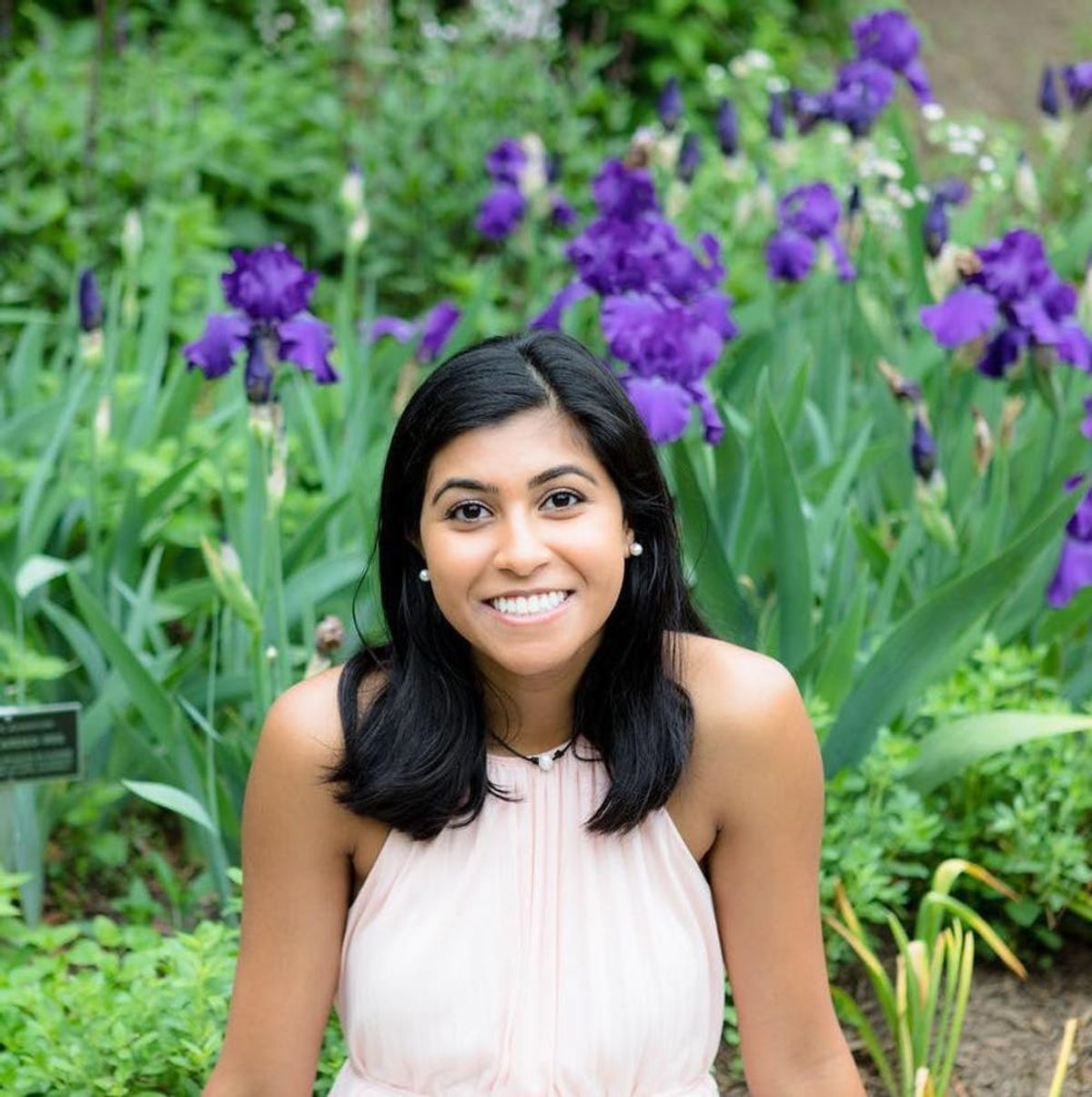“With no other choice, I quit makeup cold turkey. Suddenly I felt liberated.”
Muslim Women’s Day 2018: How I Let go of White Beauty Standards


We’re proud to celebrate #MuslimWomensDay 2018 and hear Muslim women talk about the issues that impact them.
I wasn’t expecting to look in the mirror and hate what I saw — until the day it suddenly happened three years ago.
Per usual, I was running late to school. I threw my hair back into a messy bun that I knew would come off as “edgy” and walked toward the mirror so I could check my makeup right before going to class. What I saw was a failure of the beauty industry: My cheekbones were basically up to my forehead, my lips twice their actual size. My complexion seemed, to me, the color of whatever would happen if a caramel and an orange reproduced.
*
I’m a half-Indian, half-Bengali girl with naturally chubby cheeks and cocoa skin. Being a Muslim American of South Asian descent, I’m used to looking different than the girls in magazines with platinum blonde hair. A part of me always knew that my Islamic identity made me into the strong individual I am today, but when it came to beauty, that idea was easily lost in translation.
The beauty industry is navigating an interesting watershed moment in today’s consumer landscape. Advertising campaigns mirror headlines shouting that “every body is a bikini body” and to “love the skin you’re in.” Don’t get me wrong: These are exactly the kinds of empowering statements women need to hear. But it isn’t enough.
I challenge companies to go one step further and swallow the medicine they’re actually prescribing by recognizing that not every beauty consumer is white. Where are the foundations and concealers for women with darker complexion? Where are the eyeshadow palettes that align with our pigmentation? If every kind of beauty is beautiful, why don’t your products work for every customer?
Cosmetic companies reflect an underlying, white standard of beauty. Though it often might seem invisible to some, it’s an undeniable force for women of color like me.
Whether we like it or not, an inherent notion of whiteness as the “norm” deems my darker skin color and South Asian features inferior, and therefore not profitable to cater to. I realized that day, when I looked in the mirror, that until national beauty companies start to acknowledge and rectify the racial exclusivity of their products, I had to take matters into my own hands.
I tried to give it one more chance. I squeezed a pinch of foundation on my hands to see how bad the damage actually was. It was the closest shade to my skin tone that the company had to offer, but it didn’t even come close. I was done; I threw it out and never looked back.
With no other choice, I quit makeup cold turkey. Suddenly, I felt liberated.
Rather than try and change what my body looked like on the outside, I started making sure I was taking care of myself internally. I drank lots of water and got lots of sleep, so I could be the best version of myself, physiologically.
I reaped the emotional benefits of my lifestyle change, as well. I got my confidence back, and I realized that with my unique appearance came my unique skills. I’m someone who is stimulated both by humanities and STEM; I look at stories analytically, and I find emotion within science and technology. My blended interests have given me a new perspective on the world, one that was lost when I was trying to be someone else.
People were taken off guard by my suddenly bare face, but what really surprised them was the change in my mood. I felt like I got my identity back, and that shined through. I was me again, and that was something all my friends and family were not shy to celebrate.
I realized I was never going to look like those girls in the magazines or on my Instagram explorer, because I was never supposed to. I’m not them.
We’re all different. We have different genetic makeups, we have different interests and dreams, and we will all succeed in different ways. If the world was just made up of eight billion artists, or eight billion people who all wanted to be president, things probably wouldn’t go too well. If we can accept that fact from a social and professional standpoint, then why don’t we see that from the scope of appearance?
I’m Jennah. I like running marathons and reading Chimamanda Ngozi Adichie and baking cookies with Nutella in them (yeah, that’s a thing and it’s freaking amazing). No one does Jennah better than me.
I have a few small dots on my face from never wearing sunscreen to field hockey practice when I was younger (yeah, sorry Mom). I realized no one else probably has that same configuration of dots and no one’s face will look exactly like mine. There’s something innately beautiful about oneness, even if it’s not the typical form of “hot.”
The next time I looked in the mirror, I knew I looked the way my body was truly supposed to look. I smiled at my naturally chubby cheeks and did a total wholesome Gina Rodriguez power move: “Today’s gonna be a great day. I can. And I will.”
***

Jennah Haque is a freshman at MIT studying economics and computer science. Her goals in life are to play more field hockey and smash the patriarchy.
(Illustration by Mila Hakim. Photo via Jennah Haque)












